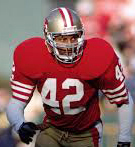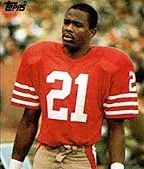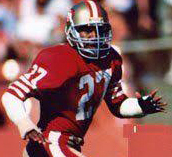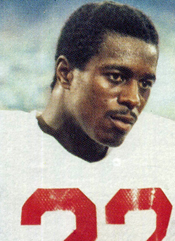Super Bowl XVI -San Francisco 49ers vs Cincinnati Bengals: Pregame
That
either the 49ers or the Bengals made Super Bowl XVI was astonishing. That both made it was unbelievable.
- The year before, both clubs had 6-10 records.
- In 1979, the Bengals were 4-12, and the 49ers were worse at 2-14.
Eddie DeBartolo, who bought the 49ers in 1977, made Bill Walsh his team's coach in 1979.
- Walsh had been a pro assistant for 11 years, nine of which were under head coach/general manager Paul Brown at Cincinnati.
- Bill quickly developed a reputation as an innovator in the passing game. He built on the ideas he learned on Al Davis's staff at Oakland and from Sid Gillman at San Diego.
- He honed his ideas even more while working as Brown's offensive coordinator with the expansion Bengals. All three quarterbacks that Bill mentored at Cincinnati led the league in completion %.
- When Brown retired as coach after the 1975 season, Walsh expected to become his successor. When Brown chose line coach Bill Johnson instead, Bill became the offensive coordinator for the Chargers where he helped improve the QB Rating of young Dan Fouts.
- In 1977, Bill became a head coach but not in the NFL. After leading Stanford to bowl games in both his seasons there, Walsh accepted DiBartolo's invitation to lead the 49ers.
San Francisco had never made the championship game since joining the NFL in 1950 after four years in the All-America Football Conference.
- They lost the NFC championship game to the Cowboys in both 1970 and '71.
- They made the playoffs the following season but lost in
the Divisional Round to Dallas again as they blew a 28-13 lead heading into the last quarter.
- It was downhill from there with only one winning season (8-6 in '76) until the 2-14 debacle of '78 opened the door for Walsh, who demanded complete control over football operations, which DiBartolo agreed to.
After the 49ers went 2-14 again in Bill's first season, they improved to 6-10 in 1980.
- Commenting that "there are high schools with better facilities," Bill convinced DiBartolo to invest in a new training complex.
- With free agency not in existence yet, Walsh had to improve the team through the draft and some shrewd trades. Topping his list of needs were offensive speed and a quarterback.
- Bill decided Joe Montana, who had a checkered career at Notre Dame, was the right man for the "West Coast Offense," as Walsh's concoction had been dubbed. The scheme sent out four receivers on almost every play - three receivers and a back. Each of them ran a pattern that varied with the defensive alignment. Montana excelled at reading the defense, anticipating the routes his receivers would choose, and hitting them in stride. He was also nimble enough to move in the pocket to find a better throwing angle or avoid the rush.
Walsh said he saw Montana's potential in his pre-draft workout. "The minute I saw Joe move, there was no question in my mind that he was the best I'd seen. I knew with the offense I planned to run, Joe would be great."
- Another addition from the '79 draft was WR Dwight Clark. 1980 brought RB Earl Cooper and LB Kenna Turner.
- The 49ers drafted four defensive backs in their first five picks in the '81 draft led by Ronnie Lott, Eric Wright, and Carlton Williamson, all of whom would start as rookies. The secondary would come to be known as "Dwight Hicks and His Hot Licks."
Offensive linemen Randy Cross recalled the impact of the rookies in the secondary. "The youthful exuberance of those young defensive backs rubbed off on the whole team as they carried no negative memories of our recent futility."
- Walsh also acquired S Dwight Hicks and TE Charle Young as free agents. The final pieces to the puzzle were two-time All-Pro DE Fred Dean in a trade with San Diego and veteran LB Jack "Hacksaw" Reynolds in a trade with the Rams.
- The overhaul of the defense bore fruit as the 49ers jumped from 27th in defense in the NFL in 1980 to 2nd in 1981.
The 1981 Niners started slowly, 1-2. Then they caught fire and won 12 of their next 13. The key game was a trip to Pittsburgh in Week 9.
- Chuck Noll's Steelers, four-time Super Bowl champions, were the epitome of a "physical" team while the 49ers were trying to shed their reputation as a "finesse" team. All season, the Niners stared at a locker room sign that declared, WE WILL NOT BE OUTHIT. Walsh had each player sign it.
The 49ers running game consisted mostly of traps and counters. The pass plays often began with a fake handoff or end-around. Critics called it "finesse footbal"l which was a derisive term implying the Niners were not manly enough to endure the rigors of NFL football.
Cross: "We resented it because we knew it wasn't true. We could play a physical game when we had to. They use the word 'finesse' when they don't understand what they're watching, that's all."
Walsh didn't mind the term because it implied his team played cerebral football. He relished being called "The Genius" for his innovative ideas.
- The game was particularly big for QB Joe Montana, who had grown up in the Pittsburgh area. Joe said, "If we could go into Pittsburgh and beat them, we were good enough to win it all. They are our litmus test." Despite Joe playing with bruised ribs, the 49ers edged the Steelers 17-14.
- The rebuilt SF defense allowed more than 17 points in just three games.
Ronnie Lott recalled: "The team did start out shakily ... but then we got on a roll, winning seven games in a row and really starting to build some momentum. However, even as we started winning and the team was beginning to gel, we weren't getting our due. ... Monday Night Football was a big thing with our team. The program would run the weekend's NFL highlights on TV, and it never showed our team. ... Bill Walsh made that a point for us to rally around, and it got louder each week."
In Week 14, the Niners traveled again to meet another AFC Central foe.
- The Bengals were 10-3 and had already clinched the division title.
- Montana threw for two touchdowns and ran for one. Cincinnati committed six turnovers as the 49ers prevailed 21-3.
- Walsh was especially pleased with the victory, which told Bengals GM Brown, "You should have made me your successor."
The Niners finished with the NFC's best record, 13-3, to win the NFC West by a whopping six games. That gave SF home field advantage throughout the playoffs.
- On a day full of big plays, the 49ers beat the Giants 38-24.
- That set up another match with the franchise nemesis - the Cowboys. But this time the game was in Candlestick Park. The game will forever be known for "The Catch" - Clark's leaping grab in the back of the end zone of Montana's pass with 0:58 left to pull out the 28-27 victory.
Walsh said of his '81 team, "We weren't a great team that year, but we made great plays."
Cross recalled, "That wasn't the most talented team we ever had [in San Francisco] but it was a team with some great individual players and tremendous chemistry. We were so young, we didn't know we weren't supposed to win. The press would say, 'Well, you can't beat Dallas in a playoff game.' We'd say, 'Why not?' We were just naive enough to think that anything was possible, even a Super Bowl."
The Cincinnati Bengals began as an expansion team of the American Football League in 1968, two years before the merger with the NFL.
- Paul Brown, the legendary Cleveland Browns coach (1946-62) who had been inducted into the Pro Football Hall of Fame in 1967, coached the Bengals through 1975. During that time, Cincinnati made the playoffs three times but lost all three games.
- When Brown decided to drop Head Coach from his titles and concentrate on being General Manager, he chose Offensive Line Coach Bill Johnson as his replacement instead of Bill Walsh.
- The Bengals fell from 11-3 in Brown's last year as coach to 10-4 and then 8-6 under Johnson.
- When Cincy started 0-5 in 1978, Johnson resigned, and Homer Rice took over and went 4-7 the rest of the way.
After the Bengals went 4-12 again in '79, Brown hired Forrest Gregg as head coach. NEW UNIFORMS Collinsworth: "Put up or shut up."
- Vince Lombardi had called Gregg "the finest football player I ever coached" when Forrest played tackle on the Green Bay teams that won five NFL titles and the first two Super Bowls.
- After retiring as a player, Gregg became an assistant coach and then the head coach of the Browns from 1975 through 1977.
- Brown explained, "What we needed were some rules. We needed a tough guy." Instilling the discipline he learned from Lombardi, Forrest improved Cincinnati to 6-10 his first season and then 12-4 and the AFC Championship in 1981.
QB Ken Anderson recalled, "Forrest Gregg came along at a good time for us. When he became our head coach in 1980, we were a team that wasn't disciplined, wasn't necessarily in great physical shape, and wasn't very strong. Forrest grabbed us by the back of the neck and shook us and made us a tough football team, physically and mentally ... Certainly that wasn't the Paul Brown style, but Paul let Forrest coach the team his way and he got results. We had good coaches, we had chemistry. We were an excitable, emotional team, and we had talent."
Gregg's quick success resulted from assembling an outstanding coaching staff and continuing a series of successful drafts that began in 1977.
- Quarterbacks-receivers coach Lindy Infante and defensive coordinator Hank Bullough led the staff. Bullough installed the 3-4 defense that Miami had used to win back-to-back Super Bowls in 1972-73.
- All 22 starters on the '81 Bengals were draft choices, eight of which were first rounders.
Offense: RB Charles Alexander,
WR Isaac Curtis,
LT Anthony Munoz,
C Blair Bush
Defense:
DE Eddie Edwards, NT Wilson Whitley, DE Ross Browner, LB Glenn Cameron.
Like Joe Montana, QB Ken Anderson, who played at tiny Augustana college in Illinois, had been a third round pick back in 1971.
- Paul Brown drafted Anderson based on the recommendation of his quarterbacks coach, one Bill Walsh.
- Under Walsh's tutelage, Ken became the full-time starter in his second season. Anderson possessed the same traits that Bill would see later in Joe Montana - ability to read defenses, make quick decisions, and throw accurately.
- In 1974, Ken led the NFL in completions (213), completion % (64.9), passing yards (2,667), and yards/attempt (8.1). He increased his yardage to 3,169 in '75, again topping all QBs.
- The Bengals' declining fortunes were illustrated by the fact that the next time they led the league in anything was in sacks allowed (46) in 1979.
But with Gregg at the helm, Cincinnati went from worst to first in two seasons.
- Like the 49ers, Cincy started slowly in 1981 - just 3-2 after five weeks.
- When Anderson threw two INTs in the opener against the Seahawks, Gregg benched him. But he decided to start Ken in Game 2. He threw only eight more picks the rest of the season, a performance that earned him the NFL Player of the Year Award.
- Then they won seven of their next eight games. The only loss was to the Saints in New Orleans, 17-7, when the offense couldn't get untracked.
- After the loss to the 49ers, the Bengals clinched the division by beating the Steelers at Three Rivers Stadium 17-10.
- Cincinnati ranked second in the AFC in points scored. The offense boasted a 1,000y rusher in FB Pete Johnson and a 1,000y receiver in Cris Collinsworth.
The Bengals had drafted David Verser, out of Kansas in the first round and Collinsworth in the second. Anderson recalled, "Cris, our second-round pick out of Florida, worked hard and made an impression and won the job. He was tall and lanky, but he was faster than people thought and had tremendous hands and a great love of playing the game."
As the AFC's #1 seed, the Bengals enjoyed a bye week.
- They won the first playoff victory in the 14-year history of the franchise when they defeated Buffalo 28-21.
- The AFC Championship Game is remembered as the the "Freezer Bowl." With the temperature at -11° and the wind chill estimated at -59°, the San Diego Chargers committed six turnovers to succumb 27-7.
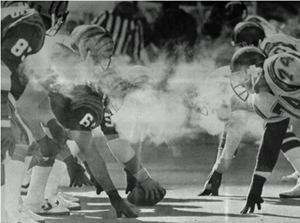 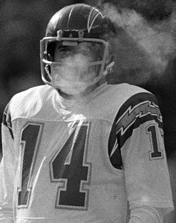
The "Freezer Bowl"; at the right is San Diego QB Dan Fouts
The Bengals practiced outdoors in frigid Cincinnati during the first of the two weeks before the Super Bowl.
QB Ken Anderson believed the outdoor practices had a negative effect on the team's preparation. "We stayed in Cincinnati all week and practiced. The conditions were just as brutal. It was tough to get a lot of work done in the cold."
Super Bowl XVI was the first one not held at a warm weather location.
- The low temperature in Detroit was -8° when the two teams arrived a week before the game.
Walsh tried to relax his young squad during the week, starting with their arrival. He had flown ahead of the team to fulfill media obligations. When the team bus from the airport pulled up at the hotel, he met it wearing a bellhop's uniform. "At first, none of them recognized me. There were tussles when I tried to take suitcases from them, and when I held out my hand for tips, they reacted with disgust. Soon, Lawrence Pillers recognized me and then Joe Montana, and then everyone starting laughing. It turned out to be a lighthearted way to start the week, with a little humor, because it quickly became one of the most difficult weeks we'd every experienced."
Fred Dean recalled, "When I was with the Chargers and we would get in the playoffs, it was intense. The coaches really tensed up. But with the 49ers, Bill Walsh was different." When he posed as a bellhop, "he made it an enjoyable moment. If he was tense about the game, he wasn't showing it. He seemed to be relaxed, and it was reflected in how the players played. We were loose. Our feeling was, let's go out and have fun."
Earl Cooper appreciated what his coach did. "He set the mood just by being loose and being Bill. Bill always had a joke. He was very humorous but very serious at the same time. In his humor, he was still a teacher. He was still working for that edge."
- The Michigan Host Committee worked hard to transform the Motor City into a Super Bowl city. Frank Sinatra and Rod Stewart performed concerts. Diana Ross sang her Motown hits. Henry Mancini conducted the Detroit Symphony Orchestra in a pops concert.
- Saginaw Street in Pontiac MI, the site of the Silverdome, the Lions' seven-year old stadium that would house the game, was turned into "Bourbon Street North." For five bucks, partygoers could loop via bus from one saloon to the next.
- If you didn't mind the bitter cold that lasted all week, you could take in the dog sled races.
- A grumpy press corps spent the week sloshing through rock salt to avoid slipping on the frozen streets.
- Most of the players from both teams checked into their Dearborn hotel and didn't budge all week except to ride the bus 30 minutes to practice at the Silverdome.
With both teams practicing at the same facility, the league had to determine which one would workout at 8 AM and which one would take the 11 AM. The Bengals won the coin flip and took the 11 AM slot. That gave the 49ers the morning slot, which didn't please Walsh. "It may have seemed fair to the NFL, but in fact, it turned out to be grossly unfair. The Bengals were coming from the same time zone, so they really had no change in their daily routine. But we were coming from the Pacific time zone, a three-hour differential. That meant that we were getting up at the equivalent of 3:30 to 4:00 AM in order to have breakfast, attend brief meetings, and get taped before being bussed to practice. It would have been one thing if we'd had to do that for a single day, but we were expected to do it all week. The players never really did adjust. By the third day we were functioning on nerve along. We just couldn't get enough sleep. I made every effort to use our plight as a further source of motivation. I told the team it was just another 'example' of the NFL not giving the 49ers the respect we deserved."
"We were off," recalled Cross, "but it was a combination of factors. The time difference was part of it. ... Our bodies started double-clutching on us about halfway through practice. The other thing was we had a bunch of young guys making their first trip to a Super Bowl, and we were just excited to be in that setting. It took a while to focus on the job at hand. Once we did, we were fine."
Bengals coach Forrest Gregg was the first Super Bowl player to return as a head coach.
- Gregg had played 14 years for the Packers and one final year for the Cowboys.
- He insisted he was not a clone of either Vince Lombardi or Tom Landry. "I paid attention to the techniques of Lombardi and Landry because I knew I wanted to go into coaching."
- In dealing with the press, however, Gregg sounded more like Bud Grant or Chuck Noll, shying away from saying anything the least bit controversial. "A coach puts down X's and O's and gets the right people into the game and is responsible for the mental approach. You've got to be physically and mentally ready. I can try to get them to give everything they can, work as hard as they can for 60 minutes."
The Bengals were favored - just barely, by one point.
Anderson recalled, "I didn't sleep well the night before the Super Bowl, but I didn't sleep well before any game, even in preseason. I was nervous in the locker room and when we went out onto the field, but I think everybody was nervous, including the 49ers."
It was CBS's turn to televise the game.
- Pat Summerall and John Madden announced the game.
- The telecast drew an estimated 85.2 million viewers.
- The cost of a 30-second commercial was $324,000.
- Jack Buck and Hank Stram, CBS's popular Monday Night Football crew, broadcast the game on radio.
When game day finally arrived, the 49ers were relieved to be rid of their "impossible" living conditions. But it turned out their woes were not over.
Walsh: "There were two team buses, and I was on the second, with about half the squad. The early bus made it to the stadium without any serious trouble, but our bus got stuck in a massive traffic jam. We found out later that it was because of a motorcade for then-Vice-President George Bush, but we didn't know what the problem was at the time. We could communicate by radio telephone to the players in the locker room who were already dressing but we had no way of knowing when we'd get there. I was becoming very concerned, and I could feel the tension of the bus. Players have their routines before a game. They spend a certain amount of time getting dressed, for instance, and they have their own rituals, whether it's meditating by themselves or talking to teammates or listening to a Walkman. They wouldn't have the time to do this now, and they were out of their comfort zone. ...
"I first amusingly remarked that we would join arms and hike cross-country. Then I got on the bus PA and told the players that the game had alread started and we were ahead, 7-0. I said that Chico Norton, our equipment manager, was calling plays and Ted Walsh, his assistant, was playing quarterback. The players laughed and it broke the tension.
"Finally the traffic broke, and none too soon. We didn't get to the stadium until 20 minutes before scheduled warmups. Players were frantic, trying to get dressed quickly to get on the field."
To help his stranded teammates relax, Montana played the song "This Is It" on his portable stereo. "It did seem to ease the tension a bit," Joe recalled.
Meanwhile, the players already in the locker room found a way to ease the tension. As Cross described it, "In kind of our own fantasy league, we were splitting ourselves up about which of us would play both ways and our equipment manager, Chico Norton, announced he's take Joe's spot and play quarterback."
One of the players who had gone to the stadium early was LB Hacksaw Reynolds. Defensive coordinator Chuck Studley recalled: "He went to the pre-game meeting and meal completely dressed in his uniform - shoulder pads, helmet, the whole bit. I've never seen it before or since. From the moment he got up on game day, he was nothing but total business. He didn't want anybody talking to him."
When the team returned to the locker room after warmups, Walsh asked Montana to play "This Is It" again. "A lot of the words in that song were really appropriate for our situation," Joe recalled.
Walsh sensed that his club was ready and didn't see the need for a pep talk. The song was enough of a motivator.
LB Dan Bunz felt the song "represented what we worked all year long for. Lifted tons of weights, ran the miles, suffered through pinched nerves and concussions and sprained ankles, separated shoulders and endure all of that, all of the yelling and screaming, then 'This Is It.'" Bunz recalled, "As we left the lockers for the field, I felt hair literally stand up on my neck. That was not something I experienced before. I was levitating."
Diana Ross sang the National Anthem, and former Lions' Hall of Fame QB Bobby Layne performed the opening coin toss.
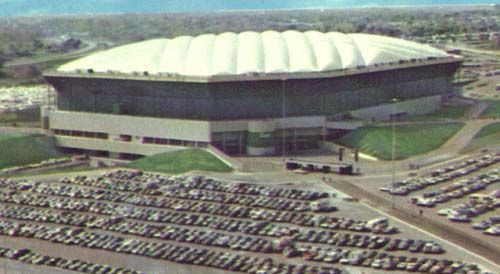 |
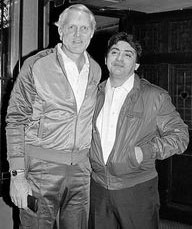
Bill Walsh and Eddie DiBartolo
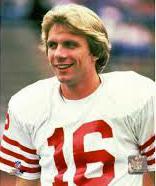
Joe Montana 1979
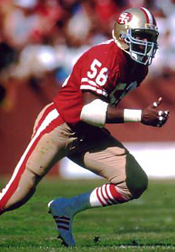
Kenna Turner
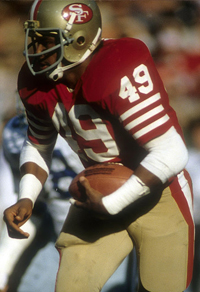
Earl Cooper
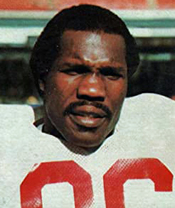
Charle Young
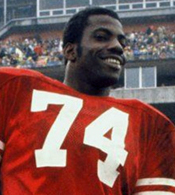
Fred Dean
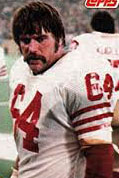
Jack Reynolds
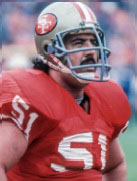
Randy Cross
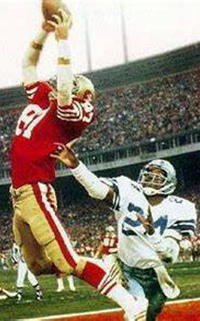
Dwight Clark "The Catch"
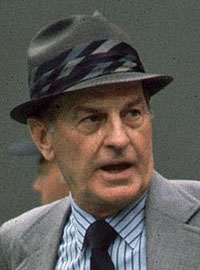
Paul Brown
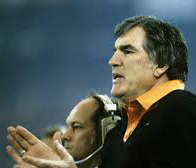
Forrest Gregg
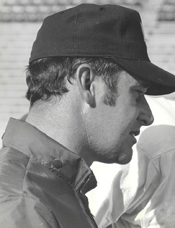
Lindy Infante
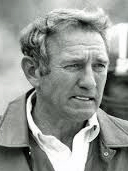
Hank Bullough
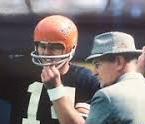
Ken Anderson and Paul Brown
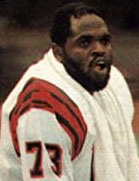
Eddie Edwards
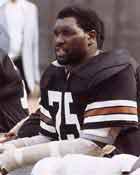
Wilson Whitley
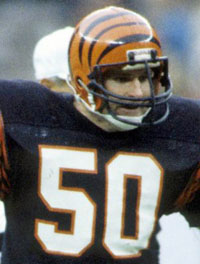
Glenn Cameron
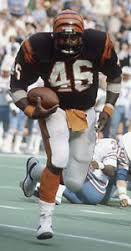
Pete Johnson
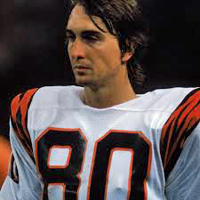
Cris Collinsworth
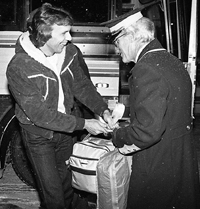
Bill Walsh, Bellman
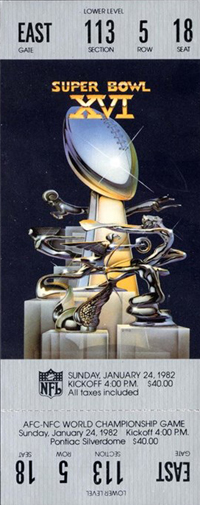
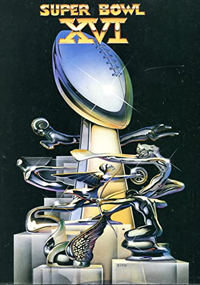
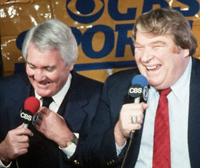
Pat Summerall and John Madden
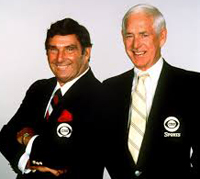
Hank Stram and Jack Buck
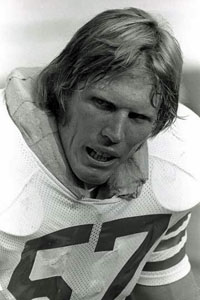
Dan Bunz
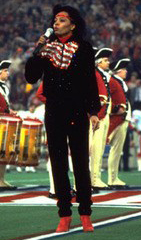
Diana Ross sings the National Anthem in her hometown.
|
1980 San Francisco 49ers
| # |
Player |
Pos. |
Hgt. |
Wgt. |
College |
Exp. |
| 3 |
Jim Miller |
P |
5-11 |
185 |
Ole Miss |
2 |
| 7 |
Guy Benjamin |
QB |
6-4 |
210 |
Stanford |
4 |
| 14 |
Ray Wersching |
K |
5-11 |
215 |
California |
9 |
| 16 |
Joe Montana |
QB |
6-2 |
200 |
Notre Dame |
3 |
| 20 |
Amos Lawrence |
RB |
5-11 |
180 |
North Carolina |
1 |
| 21 |
Eric Wright |
CB |
6-1 |
180 |
Missouri |
1 |
| 22 |
Dwight Hicks |
FS |
6-1 |
190 |
Michigan |
3 |
| 24 |
Rick Gervais |
S |
5-11 |
190 |
Stanford |
1 |
| 27 |
Carlton Williamson |
SS |
6-0 |
205 |
Pittsburgh |
1 |
| 28 |
Lynn Thomas |
CB |
5-11 |
180 |
Pittsburgh |
1 |
| 29 |
Saladin Martin |
CB |
6-0 |
180 |
San Diego State |
2 |
| 30 |
Bill Ring |
RB |
5-10 |
210 |
Brigham Young |
1 |
| 31 |
Walt Easley |
RB |
6-2 |
225 |
West Virginia |
1 |
| 32 |
Ricky Patton |
RB |
5-11 |
190 |
Ferris St./Mich/Jack.St. |
4 |
| 35 |
Lenvil Elliott |
RB |
6-0 |
205 |
Truman State |
9 |
| 38 |
Johnny Davis |
RB |
6-1 |
235 |
Alabama |
4 |
| 42 |
Ronnie Lott |
CB |
6-0 |
200 |
USC |
1 |
| 49 |
Earl Cooper |
RB |
6-2 |
225 |
Rice |
2 |
| 51 |
Randy Cross |
G |
6-3 |
250 |
UCLA |
6 |
| 52 |
Bobby Leopold |
LB |
6-1 |
215 |
Notre Dame |
2 |
| 53 |
Milt McColl |
LB |
6-6 |
250 |
Stanford |
1 |
| 54 |
Craig Puki |
LB |
6-1 |
230 |
Tennessee |
2 |
| 56 |
Fred Quillan |
C |
6-5 |
260 |
Oregon |
4 |
| 57 |
Dan Bunz |
LB |
6-4 |
225 |
Cal-Riverside,LngBchSt |
4 |
| 58 |
Keena Turner |
LB |
6-2 |
220 |
Purdue |
2 |
| 59 |
Willie Harper |
LB |
6-2 |
215 |
Nebraska |
9 |
| 60 |
John Choma |
G |
6-5 |
260 |
Virginia |
1 |
| 61 |
Dan Audick |
T |
6-3 |
255 |
Hawaii |
5 |
| 62 |
Walt Downing |
C |
6-3 |
260 |
Michigan |
4 |
| 64 |
Jack Reynolds |
LB |
6-1 |
230 |
Tennessee |
12 |
| 65 |
Lawrence Pillers |
DE |
6-4 |
255 |
Alcorn State |
6 |
| 66 |
Alan Kennedy |
T |
6-7 |
275 |
Washington State |
1 |
| 68 |
John Ayers |
G |
6-5 |
260 |
Texas, W. Texas A&M |
5 |
| 71 |
Kevin Fahnhorst |
T |
6-6 |
265 |
Minnesota |
8 |
| 74 |
Fred Dean |
DT/E |
6-2 |
230 |
Louisiana Tech |
7 |
| 75 |
John Harty |
DT |
6-4 |
260 |
Iowa |
1 |
| 76 |
Dwaine Board |
DE |
6-5 |
250 |
North Carolina A&T |
3 |
| 78 |
Archie Reese |
NT |
6-3 |
260 |
Clemson |
4 |
| 79 |
Jim Stuckey |
DE |
6-4 |
250 |
Clemson |
2 |
| 80 |
Eason Ramson |
TE |
6-2 |
230 |
Washington State |
4 |
| 84 |
Mike Shumann |
WR |
6-1 |
180 |
Florida State |
4 |
| 85 |
Mike Wilson |
WR |
6-3 |
215 |
Washington State |
1 |
| 86 |
Charle Young |
TE |
6-4 |
235 |
USC |
9 |
| 87 |
Dwight Clark |
WR |
6-4 |
210 |
Clemson |
3 |
| 88 |
Freddie Solomon |
WR |
5-11 |
185 |
Tampa |
7 |
|
1980 Cincinnati Bengals
| # |
Player |
Pos. |
Hgt. |
Wgt. |
College |
Exp. |
| 10 |
Jim Breech |
K |
5-6 |
160 |
California |
3 |
| 12 |
Jack Thompson |
QB |
6-3 |
215 |
Washington State |
3 |
| 13 |
Ken Riley |
CB |
6-0 |
185 |
Florida A&M |
13 |
| 14 |
Ken Anderson |
QB |
6-3 |
210 |
Augustana (IL |
11 |
| 15 |
Turk Schonert |
QB |
6-1 |
190 |
Stanford |
1 |
| 21 |
Oliver Davis |
S |
6-1 |
205 |
Tennessee State |
5 |
| 25 |
John Simmons |
CB |
5-11 |
190 |
SMU |
1 |
| 26 |
Bobby Kemp |
SS |
6-0 |
185 |
Cal State-Fullerton |
1 |
| 27 |
Bryan Hicks |
FS |
6-0 |
190 |
McNeese State |
2 |
| 34 |
Louis Breeden |
CB |
5-11 |
185 |
North Carolina Central |
4 |
| 36 |
Jim Hargrove |
RB |
6-2 |
230 |
Wake Forest |
1 |
| 40 |
Charles Alexander |
RB |
6-1 |
220 |
LSU |
3 |
| 42 |
Mike Fuller |
S |
5-10 |
190 |
Auburn |
7 |
| 44 |
Ray Griffin |
CB |
5-9 |
190 |
Ohio State |
4 |
| 45 |
Archie Griffin |
RB |
5-9 |
190 |
Ohio State |
6 |
| 46 |
Pete Johnson |
RB |
6-0 |
250 |
Ohio State |
5 |
| 49 |
Guy Frazier |
LB |
6-2 |
215 |
Wyoming |
1 |
| 50 |
Glenn Cameron |
C |
6-2 |
230 |
Florida |
7 |
| 51 |
Rick Razzano |
LB |
5-11 |
225 |
Virginia Tech |
2 |
| 52 |
Tom Dinkel |
LB |
6-3 |
240 |
Kansas |
4 |
| 53 |
Bo Harris |
LB |
6-3 |
225 |
LSU |
7 |
| 55 |
Jim LeClair |
LB |
6-3 |
235 |
North Dakota |
10 |
| 56 |
Reggie Williams |
LB |
6-0 |
230 |
Dartmouth |
6 |
| 58 |
Blair Bush |
C |
6-3 |
250 |
Washington |
4 |
| 60 |
Blake Moore |
C |
6-5 |
265 |
Wooster |
2 |
| 62 |
Dave Lapham |
G |
6-4 |
260 |
Syracuse |
8 |
| 65 |
Max Montaya |
G |
6-5 |
275 |
UCLA |
3 |
| 67 |
Gary Burley |
DE |
6-3 |
270 |
Pittsburgh |
6 |
| 68 |
Mike Obrovac |
T |
6-6 |
275 |
Bowling Green |
1 |
| 71 |
Rod Horn |
NT |
6-4 |
270 |
Nebraska |
2 |
| 72 |
Mike St. Clair |
DE |
6-5 |
250 |
Iowa Central/Grambling |
6 |
| 73 |
Eddie Edwards |
DE |
6-5 |
255 |
Miami (FL) |
5 |
| 74 |
Glenn Bujnoch |
G |
6-5 |
260 |
Texas A&M |
6 |
| 75 |
Wilson Whitney |
NT |
6-3 |
265 |
Houston |
5 |
| 77 |
Mike Wilson |
T |
6-5 |
270 |
Georgia |
4 |
| 78 |
Anthony Munoz |
T |
6-6 |
280 |
USC |
2 |
| 79 |
Ross Browner |
DE |
6-3 |
260 |
Notre Dame |
4 |
| 80 |
Cris Collinsworth |
WR |
6-5 |
190 |
Florida |
1 |
| 81 |
David Verser |
WR |
6-1 |
200 |
Kansas |
1 |
| 83 |
M. L. Harris |
TE |
6-5 |
240 |
Tampa/Kansas State |
2 |
| 84 |
Don Bass |
WR |
6-2 |
220 |
Houston |
4 |
| 85 |
Isaac Curtis |
WR |
6-1 |
190 |
California/S. Diego St. |
9 |
| 86 |
Steve Kreider |
WR |
6-3 |
190 |
Lehigh |
3 |
| 87 |
Pat McInally |
P |
6-6 |
210 |
Harvard |
6 |
| 89 |
Dan Ross |
TE |
6-4 |
235 |
Northeastern |
3 |
|
References: Building a Champion: On Football and the Making of the 49ers, Bill Walsh with Glenn Dickey (1990)
The Super Bowl: Celebrating a Quarter-Century of America's Greatest Game (1990)
Super Bowl Chronicles: A Sportswriter Reflects on the First 30 Years of America's Game, Jerry Green (1995)
Super Bowl: The Game of Their Lives, Danny Peary (ed.) (1997)
The Football Game I'll Never Forget: 100 NFL Stars' Stories, selected by Chris McDonell (2004)
The Ultimate Super Bowl Book, Bob McGinn (2009)
50 Years, 50 Moments: The Most Unforgettable Plays in Super Bowl History, Jerry Rice and Randy O. Williams (2015)
Super Bowl Gold: 50 Years of the Big Game, Sports Illustrated (2015)
The Super Bowl: The First Fifty Years of America's Greatest Game, David Fischer (2015)
The First 50 Super Bowls: How Football's Championships Were Won, Ed Benkin (2018)
|
|
